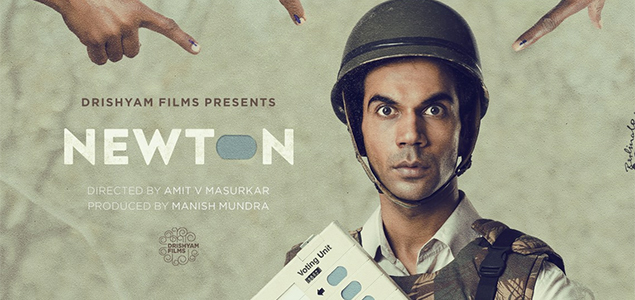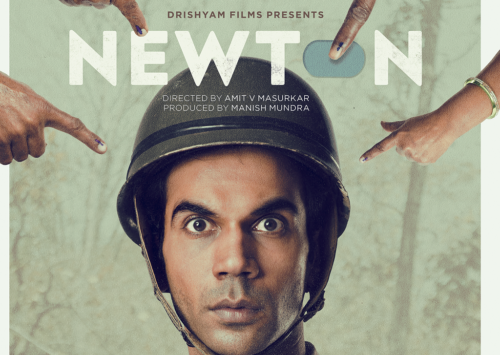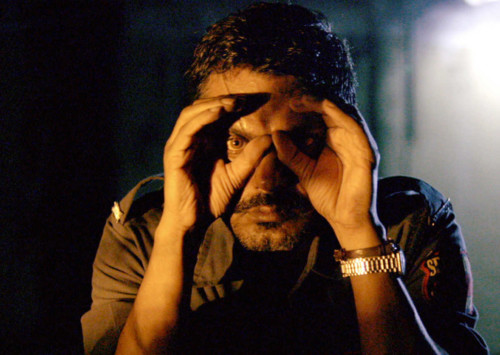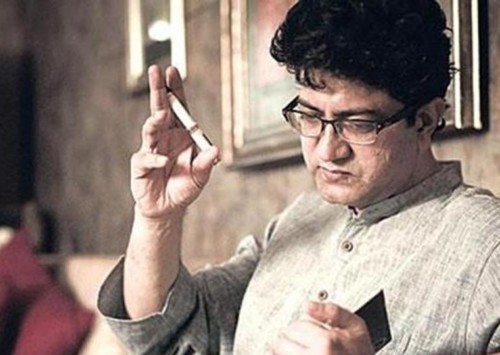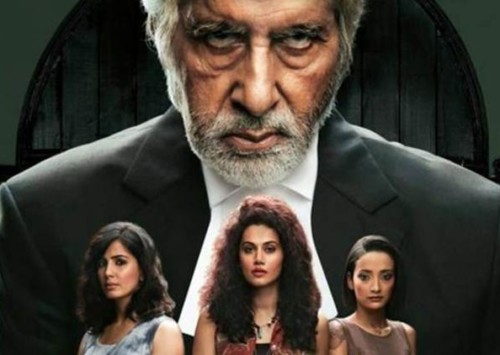Newton’s dance of democracy
Newton’s simplicity and convincing dedication startle as he embarks on a road to uncover the ironies of one of the world’s largest democracy.
Amit Masurkar’s modest political satire has created a stir among cinephiles with its ‘realistic’ antics. The film follows Nutan Kumar (Newton), a young, dedicated Indian government official into the Maoist infiltrated jungles of Dandakaranya in Chhattisgarh as the presiding election officer. The film subtly highlights the struggles of the protagonist to conduct a free and fair election for the Lok Sabha in the conflicted area amidst multiple setbacks.
Masurkar delivers one of the few better films that India has produced in the recent times, one that breaks away from stereotypes and manages to portray the multiple layers of democracy without being preachy. Most importantly, the film tackles the subject of tribal issues with utmost sincerity and puts a profound metaphor in front of the audience to decipher how indifferent we are towards the crisis of this marginal section of our society.
The character of Newton necessarily does not have bright moments however it’s his idealistic approach towards his work in the face of adversities that stands out. He is accompanied by Loknath, an aspiring writer of zombie stories; Shambhoo, a potential investor willing to buy a piece of land in the jungles and Malko, the Booth Level Officer (BLO), a local woman from the tribal belt. The safety of the ‘suicide squad’ in the apparently disturbed area was bestowed on the broad shoulders of the military commanded by Aatma Singh.
In a conversation with Malko, Newton asks,”Kya aap ashabadi hai? (Are you hopeful?)”, to which she replies, “nahi, hum sirf adivasi hai (no, we are just tribals)” – speaks volumes about the in-depth analysis and research that the Masurkar and his team has done.
Starring Rajkummar Rao, the film was released on September 22, 2017, and since then has witnessed an optimistic critics review along with a sound box-office collection. Newton has also been recently chosen as India’s official entry into the 90th Academy Awards for the Foreign Language Film category. It was chosen from among 26 titles from different languages by a 14-member jury appointed by the Film Federation of India (FFI). Newton will compete with 91 films that include the likes of Angelina Jolie starer “First They Killed My Father” from Cambodia, Michael Haneke’s “Happy End” from Austria, Sebastian Lelio’s “A Fantastic Woman” from Chile, Robin Campillo’s “BPM (Beats Per Minute)” from France, Samuel Maoz’s “Foxtrot” from Israel, Joachim Trier’s “Thelma” from Norway, and Andrey Zvyagintsev’s “Loveless” from Russia in the upcoming Oscars, 2018.
Nominations for the prestigious award will be announced on January 23, 2018.
Will the Oscar fall on this newton?#oscar #2017 #newton #film #movies #bollywood #rajkumarrao #hindi #art #foriegnfilmcategory pic.twitter.com/GrLS6ewVVO
— Varchas Koushik (@varchas_koushik) September 25, 2017
Newton was also selected as a part of the Berlinale Forum and had its world premiere at the prestigious festival on February 9. The film travelled to Berlin Forum 2017, which was focussed on ‘Realistic and Surreal’ films – and screened 43 films from around the world in the main programme/
Digging deeper
As a film, Newton does justice to the technicalities of filmmaking especially in terms of screenplay and background score. The performance of the actors holds it well together. The screenplay is engaging as it maintains the small details that make the plot believable and the character of Newton convincing. The success, however, lies in the portrayal of serious political events interjected by apt comic (read politically sarcastic) reliefs.
The idealistic nature of Nutan Kumar, who renames himself as Newton marks his renaissance into the person he chooses to be, a man of principles.
The titular character, played by Rajkummar Rao is one that embodies the imagery of an enthusiastic youth, ready to take the bull by its horns. However, his pride of honesty is gradually trampled over the due course of events that greet him during his brief span as the presiding officer at Dandakaranya. The spirit remains unwavering, as we see the film taking a leap of six months wherein Malko comes to visit Newton in his office. He greets the woman and exclaims that he can only go out for coffee after three minutes once his lunch break commences in the meanwhile showing her a prize he was awarded for punctuality. At the same time, we see the ‘affected’ forest plot being taken over for mining while Aatma Singh shops with his family in an urban departmental store. Thus, the film puts across the emotions and struggles of India’s democracy and subtly points out the difference between ‘us’ and ‘them’, the ‘oppressed’ and the ‘oppressor’ through the art of storytelling without actually pointing fingers.

